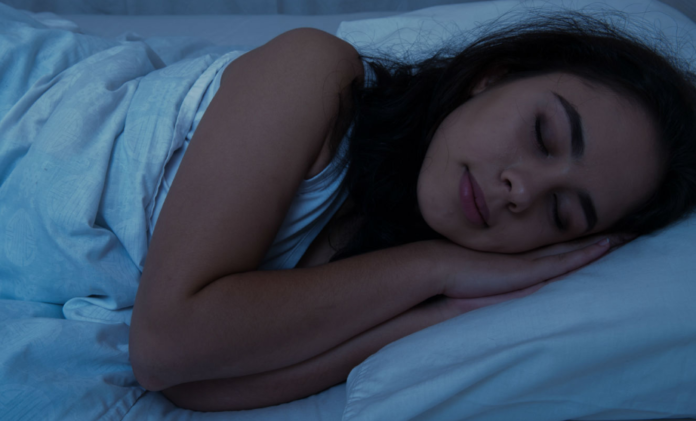Do you want to know how to sleep better at night naturally? Modifying certain behaviors during the day and at bedtime can help.
You know what happens when you can’t sleep well: you feel sluggish during the day, and your concentration suffers. Poor or insufficient sleep has been linked to other problems, such as decreased immune function and an increased risk of diabetes and high blood pressure. In your struggle to figure out how to get a better night’s sleep naturally, you’re willing to try anything. What you might not realize is that you can probably do more to improve the quality of your sleep just by implementing certain changes in your behavior – what specialists call “sleep hygiene”.
Modern times force people to postpone sleep. Making sleep a priority, however, would help just about anyone who is experiencing sleep problems . This is good sleep hygiene. By educating yourself on how to improve your sleep, you could be waking up refreshed, not groggy.
Improve your sleep hygiene
One of the main strategies used by sleep specialists to help patients overcome behaviors that contribute to chronic insomnia is stimulus control therapy. This approach includes tactics like getting up and out of your bedroom if you can’t fall asleep, and not watching TV or surfing the Internet while in bed. Instead of looking at the clock, get up and do something boring. Go back to bed only when you are sleepy.
Likewise, if you’re having trouble sleeping, limit your cell phone use around bedtime . One study found that people who spent more time on smartphones, especially around bedtime, were more likely to have shorter sleep duration, lower sleep quality, and take longer to fall asleep ( PLoS One , November 9, 2016). Therefore, turn off your cell phone, computer, and television at least an hour before you go to bed. (See the chart below for other behavior changes you can make to get better sleep.)
Still struggling with sleep? Don’t hesitate to seek professional help if you are consistently not getting enough sleep and for additional advice on how to get a better night’s sleep naturally.
HOW TO SLEEP BETTER AT NIGHT NATURALLY: DO YOUR PART
Here are some behavior changes that will help you sleep better:
During the day…
- Minimize your caffeine intake and do not consume caffeine after noon.
- If you smoke or use other tobacco products, work with your doctor to quit. Nicotine has been shown to disrupt sleep.
- Expose yourself to bright light in the morning.
- If you’re tired, take a nap, but stick to 20-30 minutes, and enjoy it sooner rather than later.
- Stay physically active, but don’t exercise within four hours of bedtime.
After sunset…
- Keep your home in dim light; avoid bright lights.
- Don’t use alcohol as a sleep aid. It may help you fall asleep, but it might prevent you from falling asleep.
- Avoid eating heavy meals late, and don’t eat within several hours of bedtime.
- Find ways to relax as your bedtime approaches.
- Instead of going to bed and worrying, write down your worries for an hour or two before bed to de-stress.
- Keep a consistent bedtime, not just on weekdays, but also on weekends.
Why not take a sleeping pill?
Prescription and over-the-counter sleep aids can help you sleep better in the short term, but they can cause daytime sleepiness, confusion, or, rarely, unusual sleep behaviors. These effects can be especially pronounced in older adults, who may be at greater risk for drowsiness, falls, slower reaction times, and sleep-driving.
Some people turn to “natural” remedies or over-the-counter supplements, such as melatonin, to help them sleep. Melatonin may be helpful if you have insomnia caused by disruptions in your sleep/wake cycle, such as shift work-related issues, jet lag ( time zone syndrome), and delayed sleep phase syndrome, but should be take five to six hours before bedtime . Additionally, some data suggests that taking magnesium supplements might promote sleep, especially in people with restless legs syndrome .
However, there is little evidence that other supplements actually work.
Find the underlying cause of your sleep problems
Chronic insomnia is often accompanied by an underlying medical condition, such as depression, anxiety, or gastroesophageal reflux disease (GERD) . Or, sleep disorders like obstructive sleep apnea or restless legs syndrome may be the culprits.
And, particularly in older men, arthritis, chronic pain, or even prostate problems can cause trouble sleeping, so look for any underlying underlying causes. And keep in mind that supplements may not be enough to fix the problem. In that case, seeking medical attention is your best “next step” if you want to know how to get a better night’s sleep naturally.




